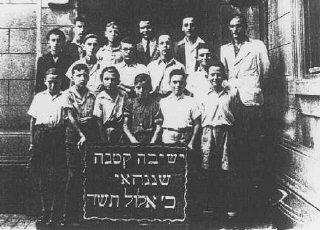- 18 May 2012 11:09
#13964344
I often read of American history analysis of World War II defining Showa-era Japan as a fascist state during World War II.
Japan under Hirohito's rule was totalitarian and nationalistic, but was it fascist? An alliance with Italy and Germany does not necessarily make Japan fascist by default if they do not model their society on explicitly fascist ideals. General Hideki Tojo was a self-described fascist, but what of the Emperor?
This Wikipedia article mentions that European fascist parties influenced Japanese political figures, but they adopted only "some elements" as opposed to total acceptance and emulation.
What do you think?
Japan under Hirohito's rule was totalitarian and nationalistic, but was it fascist? An alliance with Italy and Germany does not necessarily make Japan fascist by default if they do not model their society on explicitly fascist ideals. General Hideki Tojo was a self-described fascist, but what of the Emperor?
This Wikipedia article mentions that European fascist parties influenced Japanese political figures, but they adopted only "some elements" as opposed to total acceptance and emulation.
What do you think?
"I think when you spread the wealth around, it's good for everybody."
~Barack HUSSEIN Obama
~Barack HUSSEIN Obama
















 - By Potemkin
- By Potemkin